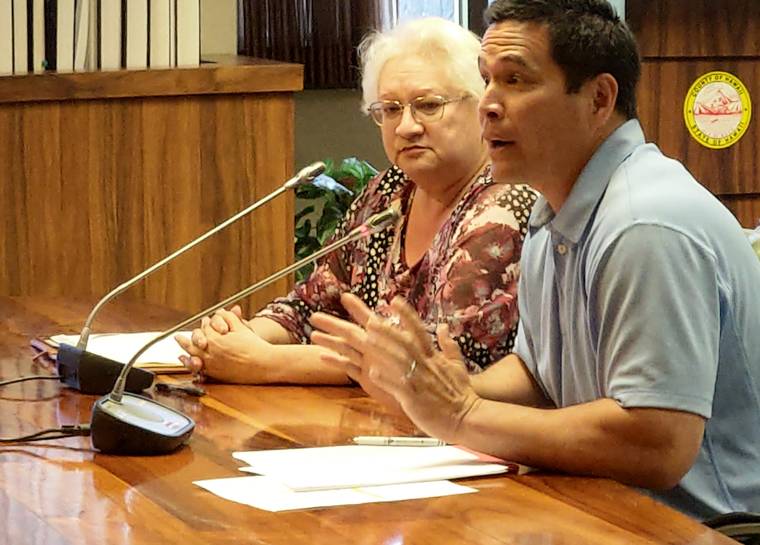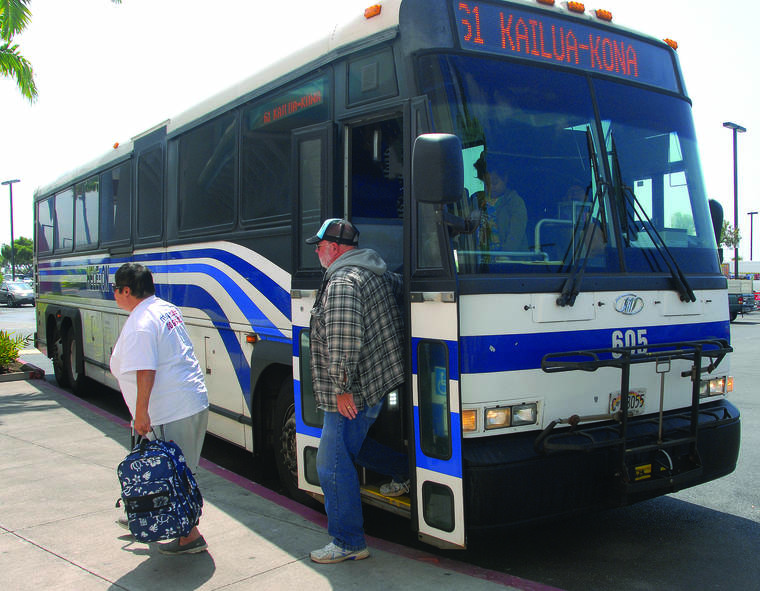State steps in, helps recoup $6.9M federal transit funds
HILO — Some $6.9 million in federal funds has been freed up for Hawaii County buses and Mass Transit operations following state intervention in a county paperwork breakdown.
The reimbursement money, covering the past three fiscal years, will be available to the county upon completion of the required Federal Transit Administration reports, according to a memo Monday from Jade Butay, director of the state Department of Transportation. The grants also require county matching funds of 25% to 100%.
The Hawaii County Council, meeting Tuesday as the Committee on Public Works and Mass Transit, seemed reassured after hearing from Ed Sniffen, deputy director of the state transportation department’s Highways Division. The federal money is sent to the state on behalf of the counties.
“There is no money that is at risk right now,” Sniffen said.
Sniffen said his department is setting up procedures to take a more active role in making sure counties are keeping up with federal reporting requirements so they can get their money. The state is also looking for training opportunities for county staff.
“We’ve adjusted our role,” Sniffen said. “We’re very comfortable we’ll bring down all the fund this year.”
Mass Transit Administrator Brenda Carreira, close to tears at several points during her presentation, said her agency is in the midst of entering data into a spreadsheet from more than 8,000 paper reports for last year alone. Other departments have volunteered staff to help accomplish the gargantuan task, but they’re not finished yet.
Carreira, the third administrator in a year, took over Oct. 1. She inherited an agency plagued by inconsistent Hele-On bus schedules, broken buses, a drop in ridership, a county performance audit that blasted sloppy cash-handling practices and low employee morale.
One of the former administrators, Tiffany Kai, was in charge of managing the grants. She had stepped down as top administrator when problems began surfacing in 2017 and is now a program manager in the department.
Carreira and Kai said the agency was understaffed and at one point had only three people in the administrative office. The agency is requesting four new positions for the fiscal year that starts July 1, in accordance with recommendations from a mass transit master plan that was completed last year.
The positions, an administrative services assistant, garage supervisor, automotive mechanic and account clerk, are expected to be paid from the county general excise tax surcharge.
Carreira said records management, asset management and compliance are the three priorities as the county works on clearing out the past problems and moving forward in anticipation of a federal audit next year. The FTA regularly audits all grant recipients every three years, Sniffen said.
Council members praised the quick action by the administration after the problem came to light, while lamenting the agency’s reluctance in letting other departments and the council know about the problem until quizzed by the council last month. The council iterated its support of Carreira’s management.
“This is an issue we uncovered,” said Puna Councilwoman Ashley Kierkiewicz, whose probing during a budget briefing brought the problem to light. “I think when we discovered the systems breakdown … we all were really shook up about what was uncovered.”
(This article has been corrected to reflect the correct title of Ed Sniffen, deputy director of the state transportation department’s Highways Division.)



